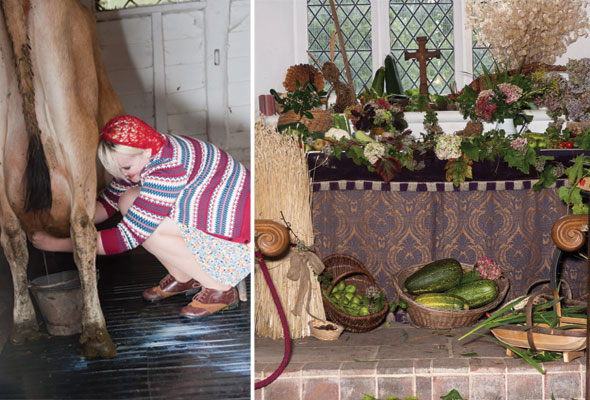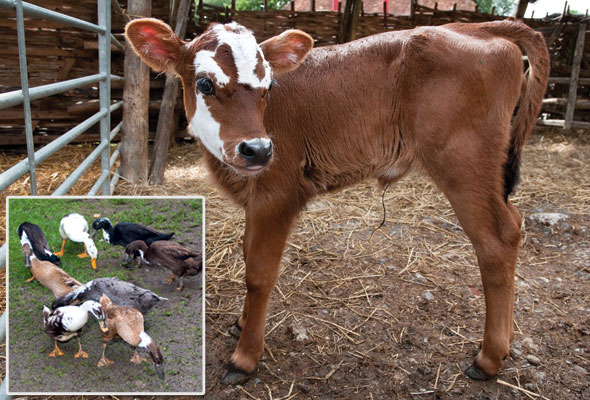Fun on the 1940s farm
Before 1939, we imported more than 70 per cent of our food, but when the war started, the risk of a German blockade meant that this figure fell dramatically. It was UK farms, staffed by land girls and prisoners of war, which stepped up to produce for Britain. Manor Farm was the perfect example of a typical wartime farm.

Sadly, despite my enthusiasm for the era, the BBC didn't get in touch to ask me to appear in the series, so I travelled down to Manor Farm myself to give a helping hand. And just in time for the harvest festival celebrations.
My day on the farm started with a delicious rabbit stew (with probably the best dumplings I've ever tasted) cooked on the range and enjoyed in the company of farm manager Alex Watts and the volunteers who help out with the dayto- day running of the park. Rationing during the Second World War meant that people had to look for alternative sources of meat, so rabbits, pigs and chickens were reared domestically and dishes like rabbit stew were a frequent feature on the wartime home menu.

By 1944 there were two and a half million fewer pigs in Britain than in 1939. The land previously given over to pigs was needed to grow crops. Consequently, pigs were raised domestically. The wartime porker was fed on a manufactured, nutritionally balanced pig feed, supplemented with a fodder crop, a similar diet to the saddleback pigs and piglets I helped to feed. The wartime pigs also got the pickings of kitchen waste (but food shortages meant that the housewives could not afford to waste too much).
In the pre-war years people consumed half a pint of milk per person per day. But by 1943, owing to the shift in farming from pasture to arable land, the ability to sustain a herd of cows was reduced, so milk production fell by four per cent. With a nation's direct consumption of milk up by 30 per cent, the demand for milk was high. Many farms with large herds did their milking by hand but Manor Farm has a mechanised milking machine, which I got to use, as well as learning to milk manually.

Seated on my milking stool, which must have been made for a much smaller milking maid than I, I was terrified. I had decided to wear an original 1940s tea dress on the day, and had a vision of the beautiful Jersey cow moving suddenly and me ending up flat out on the milk-shed floor. Resting my head on the flank of the cow (between the underline and the hind legs), I gave a few tentative tugs on her udders, and eventually I heard the sound of milk hitting the bottom of the metal bucket. After five minutes I had managed to get enough for a cup of tea. I definitely wouldn't have cut the mustard as a land girl, but I had more luck with the milking machine, which attached to the udders with ease.
Pigs fed, cows milked, church decorated, a stint on a tractor and some egg collecting in between, my day at the farm reached an end. Without the real pressures of having to produce huge quantities to feed a wartime nation, I doubt any of us will ever be able to appreciate fully the fear of starvation that must have haunted the land. But for 1940s enthusiasts, Manor Farm and the team have created an environment that is as close as we will ever get. u
Manor Farm & Country Park is run by Hampshire County Council: www3.hants.gov.uk
Photography by Brendan Bishop www.brendanbishop.com


